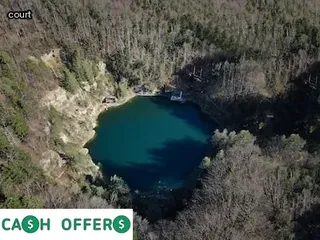Understanding probate and real estate laws in North Dakota can seem like a daunting task, but it is important to have a working knowledge of these regulatory frameworks in order to protect your assets. In North Dakota, probate law governs the transfer of property after someone dies.
It is designed to ensure that all debts and taxes are paid, as well as any remaining property is distributed according to state regulations. Real estate laws regulate how land is bought and sold, along with what rights the buyer and seller have during the transaction process.
Generally speaking, both buyers and sellers must adhere to certain disclosure requirements before closing on a deal. Furthermore, there are specific rules pertaining to mortgages, landlord-tenant agreements, zoning regulations, and other issues related to property ownership.
Understanding these laws and their implications can help you make informed decisions when considering buying or selling real estate in North Dakota.

Estate planning is an important issue to consider in North Dakota, as it can help protect your assets and avoid the probate process. Probate is a legal process that involves the distribution of your estate upon death.
This can be a time-consuming and costly process, so it’s beneficial to consider ways to avoid probate through estate planning. In North Dakota, there are several options available to those looking to reduce or avoid probate.
One option is establishing a revocable living trust, which allows you to transfer property into the trust and appoint a trustee who will manage the assets after death without going through probate court. Additionally, if you own real estate in North Dakota, it may be possible for two or more individuals to own property jointly with rights of survivorship.
Under this arrangement, if one owner dies, ownership of the property automatically passes to the surviving owners without going through probate. By understanding and taking advantage of these options available in North Dakota, you can better prepare for your future and minimize the risk of an expensive and lengthy probate process after death.
In North Dakota, the executor of an estate is responsible for paying off all debts and distributing assets to the heirs. This includes notifying creditors and settling any taxes due.
The executor must also file the will with the court and follow all probate requirements outlined by the state. Additionally, they must be aware of real estate laws in North Dakota, including the division of property among co-owners, rights to inheritance and procedures for transferring ownership of a decedent's real estate.
When it comes to compensation, an executor in North Dakota can request reasonable payment from the estate as long as it is approved by both the court and all interested parties. This may be based on a fee schedule set forth by law or determined on a case-by-case basis depending on how complicated or time consuming their duties are.
If there are multiple executors listed in the will, they should decide amongst themselves who should receive payment for their services.

Navigating the laws surrounding probate and real estate in North Dakota can be a complex and time-consuming process. However, understanding the basics of these legal systems is key to simplifying the process.
Knowing the importance of communication between all parties involved, as well as having a general knowledge of how to properly file documents with the county or state are two essential pieces of information that can make a huge difference. Additionally, it is beneficial to understand the different types of probate proceedings available in North Dakota, such as formal probate or informal probate, and which type is most suitable for your particular needs.
Finally, having an attorney familiar with North Dakota's real estate and probate laws by your side can be an invaluable asset when navigating this terrain. With these tips in mind you should be better equipped to handle any situation that arises throughout the course of your probate or real estate journey in North Dakota.
When filing for probate in North Dakota, it is important to understand the state's real estate laws. The executor of a will must open an estate and be appointed by the court in order to begin the process.
After that, they must locate any assets related to the decedent, appraise them and pay any debts with those assets. It is also necessary to file a list of all beneficiaries with the court and have it approved before distributing the estate.
North Dakota law requires that all beneficiaries receive notice within sixty days of probate filing. To ensure that everything runs smoothly, it is best to consult an experienced attorney who knows North Dakota probate law and can handle any potential issues that arise during the process.

When a loved one passes away, the process of settling their estate can be complex and emotionally trying. In North Dakota, there are a variety of probate and real estate laws that must be followed to properly distribute the assets of the deceased.
One important factor to consider is the potential tax implications in settling an estate. Depending on the size and makeup of the estate, different taxes may apply, including federal income taxes, state inheritance taxes and other property-related taxes.
It is important to consult with an experienced attorney or accountant who is familiar with North Dakota law to determine which taxes will apply and how they should be paid. Additionally, if any real estate holdings are part of the deceased's estate, it's essential to understand any applicable zoning regulations or other local ordinances that might affect how those properties can be used or transferred.
By understanding these tax implications when settling an estate in North Dakota, families can minimize their financial burden as they navigate this difficult time.
The probate court system in North Dakota is an important part of understanding real estate law and the process of transferring property rights. The court system oversees a variety of matters related to estate planning and the orderly transfer of property after death.
It also handles issues such as wills, trusts, guardianships, conservatorships, and other matters relating to the administration of estates. In North Dakota, the probate court is an independent organization that is composed of circuit courts or district courts in each county.
The probate court has jurisdiction over all matters pertaining to estate planning, including those related to real estate transactions. It acts as the final arbiter in any disputes between parties concerning the transfer or disposition of property rights under state law.
The court also reviews documents for accuracy and compliance with state laws before approving them for filing with county records offices. Probate proceedings are usually open to public inspection and are conducted by judges appointed by the governor.
Probate courts may also issue orders authorizing certain actions such as selling assets or appointing executors or administrators to manage estates according to their wishes expressed in a will or trust document.

In North Dakota, a will must meet certain requirements in order to be considered valid and go through probate. It must be acknowledged in writing, signed by the testator (the person who has made the will) and attested or witnessed by two or more reliable persons.
The testator must also have been of legal age when signing the document, meaning 18 years or older. In addition, he or she must have been of sound mind and memory at that time as well.
If any of these criteria are not met, then the will may not be accepted as valid by courts in North Dakota and could be rejected during probate proceedings. Furthermore, real estate laws in North Dakota require that both real estate ownership documents and wills must be filed with the county register of deeds where the property is located before they can become legally binding.
Understanding all of these regulations is important for anyone dealing with probate and real estate law in North Dakota.
Closing an estate in North Dakota requires a thorough understanding of both probate and real estate laws. The process starts with the filing of a petition requesting the court to open an estate and appoint an executor or administrator.
Once the executor is appointed, they must identify, locate and inventory all assets belonging to the decedent and pay off any outstanding debts. Depending on the decedent’s will, the executor may be required to contact potential heirs to notify them of their interest in the estate.
The executor must also file appropriate tax returns for the decedent and provide notice regarding any claims against the estate. After all debts are paid, distributions are made in accordance with North Dakota law or as directed by the will.
The executor must then apply for court confirmation that all steps have been completed properly before closing out the estate.

The timeframe for filing probate after a death in North Dakota is specific and must be followed to ensure that the deceased's estate is managed properly. The process begins with the appointment of an executor, who is in charge of managing the estate.
This includes gathering assets, paying taxes and debts, and distributing what remains among the heirs. In most cases, the Will must be filed within six months of death with the county court clerk where the deceased resided at the time of death.
If there is no Will or if it cannot be found, then an administrator must be appointed by the court to handle the estate. In addition to filing probate paperwork, real estate laws may also need to be considered when settling a deceased person's estate in North Dakota.
Not all estates contain real estate, but if they do, then certain rules must be followed regarding title transfer and other matters such as inheritance tax or liens associated with a property. It is important to understand all applicable laws before attempting to settle any estate in North Dakota so that mistakes are avoided and everyone involved can feel confident that they have done their due diligence in protecting their rights under state law.
North Dakota's Probate Code is comprised of rules and regulations that govern the process of transferring a deceased person's property to designated heirs. It applies to all real estate assets, including land, buildings, and other structures located in the state.
The probate process begins with the filing of an Inventory and Appraisement form which includes a listing of all the decedent's assets. This document must be filed with the county court where the decedent resided.
After reviewing this form, the court will appoint an executor or administrator who will oversee the distribution of assets in accordance with North Dakota law. All creditors must be paid before any assets can be distributed to heirs.
The executor or administrator must also prepare and file tax returns on behalf of the estate. Depending on each individual situation, other legal requirements may come into play such as filing for guardianship if minors are involved or obtaining court approval if there is a dispute between potential beneficiaries.
If all necessary parties have been notified and all debts have been settled, then disbursement can begin in accordance with North Dakota law.

Understanding the probate process and the real estate laws in North Dakota can be daunting, especially if you are dealing with the estate of a loved one. To reduce stress during this process, it is important to stay organized, understand all of your options, and know when to seek professional help.
Start by gathering all necessary documents related to the estate and organizing them into separate folders or files. Next, learn about your rights and responsibilities as an executor of the will and how they fit into North Dakota’s probate laws.
It is also important to familiarize yourself with any real estate laws that may affect the transfer of property after probate has been completed. By educating yourself on these matters, you can make informed decisions throughout the probate process.
Finally, it is essential to recognize when you need outside assistance from a lawyer or other professional who is experienced in North Dakota's probate laws and real estate regulations. Having knowledgeable support can help you navigate any legal issues that may arise during this time.
Knowing what resources are available ahead of time can make a difficult time less stressful for everyone involved.
When someone dies without a will in North Dakota, their estate is distributed according to the state's intestacy laws. Intestate succession is the process by which the court divides the estate of a person who has died without a will or other valid testamentary document.
This means that if an individual dies without having created a will, their property and assets are subject to intestate laws, which stipulate how the decedent’s property will be distributed. In North Dakota, this process is known as “administration.
” Depending on the size and complexity of the estate, administration can be handled by either an executor or administrator. An executor is usually named in a will and is responsible for managing and distributing the deceased’s estate; while an administrator is appointed by the court when there is no valid will.
The administrator must then identify all of the deceased’s assets, pay debts and distribute assets according to North Dakota's intestacy laws. The rules vary based on whether or not there are surviving family members.
If there are no surviving family members, then all assets go to the state; otherwise they are divided among living relatives according to a specific order of preference set out in law.

In North Dakota, real estate and inheritance laws vary from state to state. Understanding how these laws work is essential for anyone dealing with probate or real estate transactions in the area.
North Dakota's probate process is specifically regulated by the state's Uniform Probate Code, which outlines certain procedures that must be followed when settling a decedent's estate. In some cases, intestate succession may be used where someone who dies without a will has their property distributed according to the state's intestacy laws.
Real estate transactions are also subject to North Dakota law, as buyers and sellers must follow specific rules regarding contracts and title transfers. Additionally, both parties should be aware of any applicable tax consequences associated with their transaction.
It is important to note that North Dakota has strict requirements regarding homestead protection, so it is wise to seek legal counsel if you are considering purchasing or selling property in the area. Finally, it is important to understand that there are several types of trusts available in North Dakota, each of which has its own set of regulations and requirements.
By familiarizing yourself with these laws before entering into any real estate transaction or other inheritance situation, you can ensure that your dealings go as smoothly as possible.
Hiring a professional administrator to understand probate and real estate laws in North Dakota can be extremely beneficial. A professional with comprehensive knowledge of local statutes is able to ensure that all paperwork is properly completed and filed, reducing the risk of delays or costly errors.
An experienced administrator can also provide guidance on any relevant regulations, such as gift tax rules and timelines for completion. Additionally, a knowledgeable professional can explain potential liabilities and help the estate owner make informed decisions about investments, taxes, and other financial matters.
With their expertise, an administrator can ensure that all legal requirements are met while helping to maximize the value of the estate.

When administering an estate in North Dakota, it is important to be informed of the financial considerations that come along with probate and real estate laws. This includes understanding which assets are subject to legal proceedings, how taxes could affect the estate, and who will be responsible for paying debts owed.
In addition, individuals should be aware of the applicable filing fees, such as court costs or closing costs for real property. If there are concerns about how to pay these costs when settling the estate, it may be useful to contact an attorney for assistance.
Furthermore, individuals should understand the timeline for settling a will or trust after death and how long creditors have to make claims against a deceased person's assets. Understanding these financial aspects of probate and real estate law can help ensure an efficient process when administering an estate in North Dakota.
Donating assets from an estate is a way to pass on wealth to the next generation while also providing tax benefits. Understanding probate and real estate laws in North Dakota can help ensure that your donation is made in accordance with state regulations.
Knowing the requirements of donating property can help make the process smoother, helping to avoid potential issues. It's important to understand that the executor of the estate has the ultimate authority over any donations made from an estate.
Depending on the size of the estate and whether or not it goes through probate, there may be additional steps to take for a donation to be valid. If an asset is transferred directly prior to death, taxes may apply.
Additionally, certain types of assets such as real estate are subject to special regulations when donated after death. Working with a knowledgeable attorney who understands North Dakota probate and real estate law can provide valuable insight into how best to donate assets from an estate.

The process of dividing an estate among multiple beneficiaries can often be complex, especially when it comes to understanding probate and real estate laws in North Dakota. There are several unique challenges associated with estates with multiple beneficiaries that need to be taken into consideration in order for the process to go smoothly.
These include determining how much each beneficiary should receive, deciding who will manage the estate and assets, and making sure all taxes and legal documents are properly filed. Additionally, when one of the beneficiaries is a minor or has special needs, extra caution needs to be taken to ensure their rights are protected throughout the process.
It may also be necessary to seek professional legal advice in order to make sure everyone involved is aware of their legal rights and obligations. It's important that families understand these issues before distributing an estate so they can be prepared for any complications that may arise during the process.
Although probate is generally required in North Dakota, there are a few alternatives that can be explored to potentially avoid it. One of these alternatives is the use of transfer on death deeds.
This type of deed allows you to designate beneficiaries who will receive your real estate property upon your death. Doing so avoids probate, as the property transfers directly to the beneficiaries rather than having to go through the court system.
Additionally, if you have a will in place, it may provide for specific assets being transferred outside of probate court proceedings. Another option for avoiding probate is creating trusts and other entities that allow for asset transfers without going through the lengthy process of probate.
Lastly, you can also review any life insurance policies or retirement accounts that you may have; these can often be set up with designated beneficiaries who will receive them upon your death without involving probate courts at all. While these options do not guarantee that you can avoid probate entirely, they are worth exploring as potential alternatives depending on your situation and goals.
In North Dakota, the amount of an estate that must be worth to go to probate depends on several factors. Generally, when a person dies and leaves behind assets such as real estate, cash, or other forms of property, the state requires probate proceedings to take place in order to transfer ownership of these assets.
In North Dakota, estates worth more than $50,000 are required by law to go through probate. This means that all assets must be inventoried and appraised before they can be distributed according to the deceased individual's will or other legal documents.
Additionally, real estate and other tangible items must pass through a title transfer process before they can be transferred to their rightful heirs or beneficiaries. The court fees associated with these processes will typically depend upon the size of an estate and may also include taxes imposed by the state or federal government.
Probate proceedings can often take several months or even years so it is important for those who stand to inherit from an estate to understand how much it is worth and how long the process may take.

Yes, probate is required in North Dakota. Probate is the legal process of transferring a deceased person's assets to their heirs or beneficiaries.
It must be done in order for the assets to be distributed according to the deceased person's wishes. In North Dakota, property owned by a decedent at the time of death must go through a probate process.
This includes real estate and other types of property such as vehicles, savings accounts, and personal items. The probate process can be complicated and lengthy depending on several factors, such as the type of property owned by the decedent and size of their estate.
An experienced attorney with knowledge of North Dakota’s probate laws can help ensure that your loved one's assets are properly distributed in accordance with state law. Additionally, an attorney can provide guidance related to real estate laws in North Dakota that may affect your family during this difficult time.
In North Dakota, there is a statutory time limit to settle an estate. According to the North Dakota Probate Code, estates must be settled within two years of the decedent's death.
Generally, the executor or administrator of the estate has two years from the date of death to pay debts and distribute assets of the deceased. If an executor fails to settle the estate within this two-year period, they are subject to personal liability for any damages resulting from their failure to do so.
It is important for individuals in North Dakota to understand probate and real estate laws when settling an estate; failing to adhere to these statutes could lead to costly consequences.
Yes, North Dakota does have transfer on death deed laws. In the state of North Dakota, probate and real estate law state that the deceased person can use a Transfer on Death Deed (TODD) to transfer real estate to their beneficiaries upon their death.
This legal document allows for real estate to pass directly to a designated beneficiary without going through the probate process. To be valid, the TODD must meet specific requirements listed in North Dakota's statutes.
The requirements include that the deed must be witnessed by two people and notarized, and must contain language indicating that it is intended as a Transfer on Death Deed. It is important to understand these laws when dealing with transferring property in North Dakota.
A: Yes, attorneys are typically involved in the process of filing a Petition for Probate to have a property held in trust in North Dakota.
A: An heirship establishes the legal right to receive assets from an estate. The domicile is the state in which the deceased was legally residing. Tenancy determines how the property will be divided among multiple heirs. The grantee is the individual or entity that receives title to the real property upon being granted probate. Attorneys may be involved when filing this petition as they can provide assistance with understanding and navigating the legal process.

A: Joint Tenancy is a form of co-ownership that allows two or more people to own equal shares in a property. When one joint tenant dies, their share passes to the surviving joint tenants. Tenancy by the Entirety is a form of co-ownership in which husband and wife hold equal interests in real estate as one legal entity. Upon the death of either spouse, the surviving spouse will automatically become the sole owner of the property.
A: In North Dakota, real estate inheritance is governed by probate law. To transfer property to heirs and beneficiaries, an executor must file a Petition for Probate with the court. In this petition, information about the decedent's heirs, domicile, tenancy and grantee must be provided. Attorneys may be involved in filing a Petition for Probate to have a property held in trust.
A: When filing a Petition for Probate in North Dakota, the petitioner should have an understanding of heirship, domicile, tenancy, and grantee laws as they apply to real estate in the state. It is also recommended that attorneys are consulted to ensure all necessary steps are taken to successfully complete the Petition.
A: When transferring real estate through probate in North Dakota, the laws related to heirship, domicile, tenancy, and grantee must all be taken into consideration. Additionally, attorneys may need to be involved in filing a Petition for Probate to have the property held in trust.
A: The laws in North Dakota concerning probate are outlined in Chapter 30.1 of North Dakota Century Code and generally require an heirship, domicile, tenancy and grantee to be established before filing a Petition for Probate. Attorneys may be involved when filing a Petition for Probate to have a property held in trust.
A: When filing a Petition for Probate for real estate in North Dakota, a number of laws must be followed, including those regarding domicile, heirship, tenancy and grantee. Attorneys should also be involved to ensure that the proper legal processes are followed.
A: When filing a Petition for Probate in North Dakota to transfer real estate, it is important to consider the heirship, domicile, tenancy and grantee of the property. Additionally, an attorney can provide valuable advice and assistance throughout this process.
A: Yes, it is important to be aware of the taxation implications associated with transferring real estate through probate proceedings in North Dakota. The value of the property can affect both state and federal taxes, and it is important to consult with an attorney or tax specialist to ensure that all applicable taxes are taken into account.
A: When filing a Petition for Probate in North Dakota to transfer real estate, evidence such as certified copies of the death certificate, the will (if applicable), any deeds, and other documents evidencing the decedent's interest in the real estate must be provided.
A: A grantor's will must be considered when filing a Petition for Probate in order to transfer real estate in North Dakota. The will should specify whether any bank accounts or other personal property should be included with the real estate being transferred. Furthermore, the will may stipulate which counties the real estate is located in, as this can make a difference in how it is handled by the courts during probate proceedings.
A: A POD designation can be used as a form of estate planning in North Dakota that allows an individual to designate another person to receive their real estate property after death without needing to go through probate. In order to set up a POD, the grantor must provide written documentation that includes their name, address, date of birth, Social Security number, zip code and signatures from two witnesses. The communication should also include details about the designated beneficiary or beneficiaries.
A: The Uniform Probate Code (UPC) is a set of laws that govern how probate works in North Dakota. It applies to all real estate transfers, including wills, trusts and other forms of conveyance. It sets out the rules for filing a Petition for Probate and outlines the evidence required to prove heirship, domicile, tenancy and grantee status. The UPC also takes into account any estate planning considerations that may be relevant when transferring real estate.
A: An Executor plays a key role in the probate process in North Dakota by ensuring that all legal documents are properly filled out and filed with the court. In addition, Executors must also ensure that all assets of the deceased are accounted for and distributed according to their will or as directed by state law. The Executor must also make sure any debts owed by the deceased are paid before any assets can be transferred to heirs.
A: The North Dakota State Bar Association, North Dakota Century Code, and the North Dakota Department of Justice are all excellent resources for understanding probate and real estate laws in North Dakota.
A: According to the North Dakota Century Code, an attorney must be involved when filing a Petition for Probate to have a property held in trust in North Dakota. The heirship, domicile, tenancy and grantee of the real estate must also be taken into account. Evidence is required to prove ownership of the real estate being transferred. Additionally, a grantor's will and personal property may affect the transfer process. Finally, an Executor is responsible for overseeing all aspects of filing the Petition for Probate.
A: When filing a Petition for Probate in North Dakota to transfer real estate, an attorney must be involved to prepare the necessary documents. It is also important to consider the heirship, domicile, tenancy and grantee of the property. An Executor will manage and distribute any personal property according to the grantor's will. Evidence such as the death certificate and other legal documents may be required to complete the petition.
A: Yes, taxes may be applicable when transferring real estate through a Petition for Probate in North Dakota. The amount of taxes due will depend on the value of the property, as well as its location and other factors.